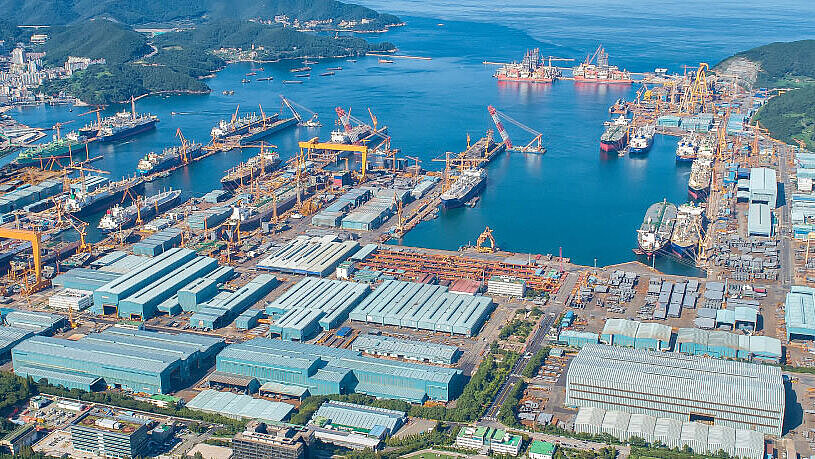
China to cut off components to Hanwha’s US operations

Operations at Hanwha Philly Shipyard, pictured, would be among those vulnerable to Chinese interference (Source: Hanwha)
China has moved beyond tariffs and is now directly targeting the US maritime supply chain by blocking access to critical Chinese-made ship components and equipment, a step that could severely disrupt repair and construction activity at select US shipyards.
In its latest retaliation against newly imposed US port fees, China’s Ministry of Commerce has sanctioned five US-based subsidiaries of South Korea’s Hanwha Group. The decision effectively prohibits Chinese companies from supplying parts and materials to Hanwha’s US shipbuilding and shipping operations – an unprecedented escalation that strikes directly at the equipment pipelines that many US yards rely on.
The entities sanctioned include Hanwha Philly Shipyard and Hanwha Ocean USA International – both key to the company’s strategy of building LNG carriers and tankers in the United States under US flag. Hanwha’s entrance into US shipbuilding has been supported by Government initiatives aimed at reshoring maritime manufacturing.
But analysts warn that without access to Chinese-made components – ranging from steel blocks to essential propulsion, navigation and auxiliary systems – these efforts could face major delays, cost overruns, or be forced to seek more expensive alternative suppliers from Europe or Japan.
Reuters also reports that Hanwha’s broader industrial network includes Chinese-based fabrication facilities that manufacture hull blocks for export to overseas yards. These operations will now be cut off from supplying the US through Hanwha’s sanctioned subsidiaries – potentially disrupting existing contracts and timelines for military and commercial ship programs.
The sanctions were issued as both China and the US activated new port fee regimes against each other’s shipping and shipbuilding sectors. Beijing simultaneously confirmed that while Chinese-built ships and vessels arriving for repairs at Chinese yards remain exempt from its own port fees, companies that have more than 25% US investment will be subject to them – a sweeping clause that could hit a wide range of shipowners.
Analysts say that China’s move to weaponise the marine spare parts supply chain marks a shift in tactics – from tariff reciprocity to targeted industrial pressure. The denial of Chinese-manufactured equipment could have significant ripple effects across dockyards currently relying on Chinese suppliers for cost-competitive materials and modules.
The US Trade Representative has responded by signalling new tariffs on Chinese-made port cranes and cargo-handling equipment, escalating a duel that is increasingly focused on controlling maritime industrial leverage.
With both sides ratcheting up their responses, shipbuilders now face not only financial barriers but potential material shortages – raising questions about the resilience of global ship repair and construction supply chains just as the industry enters a critical phase of fleet renewal and decarbonisation retrofits.
